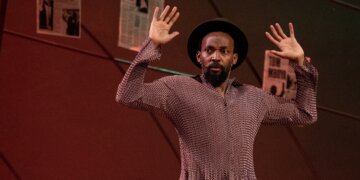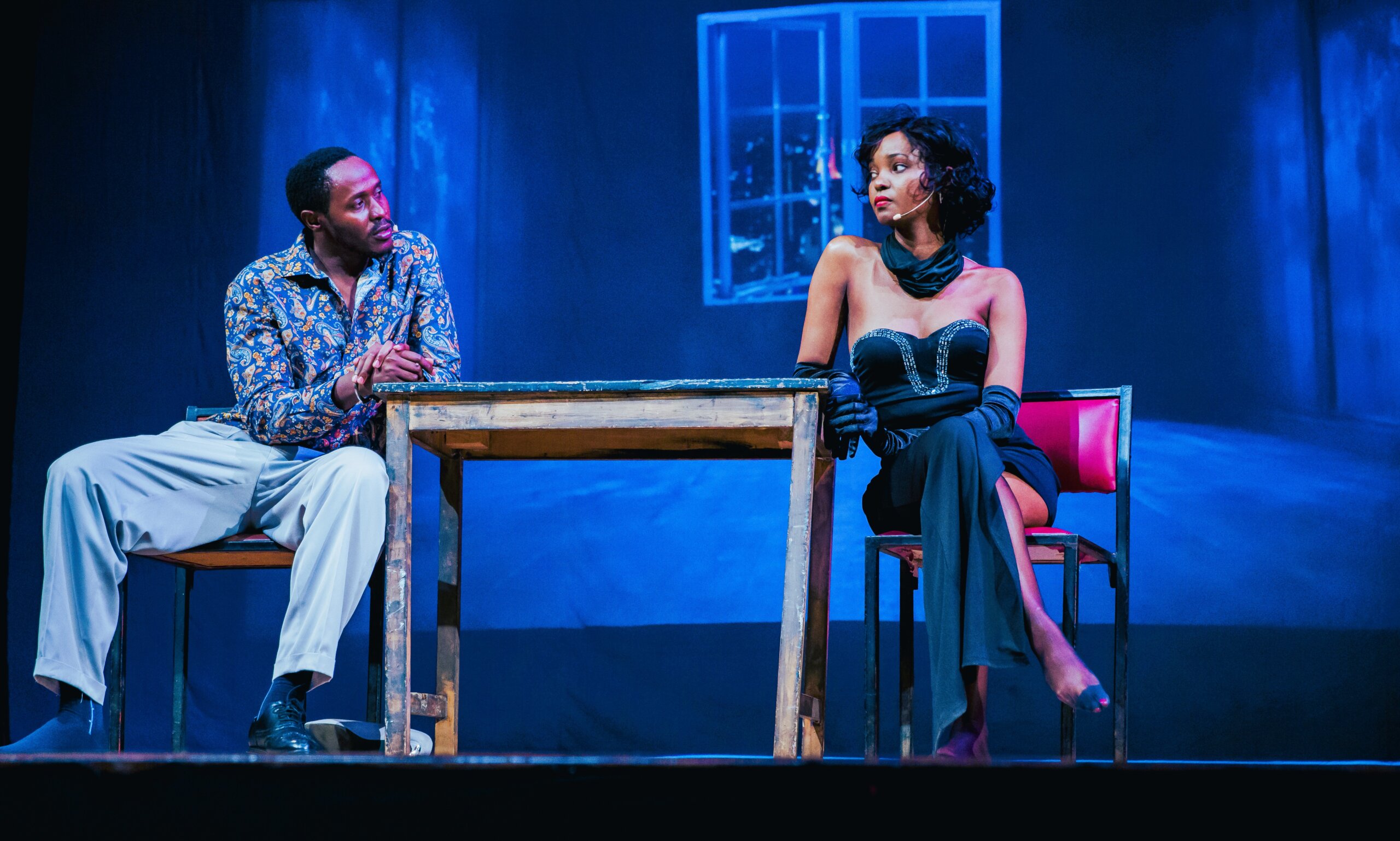Just over the terrace overlooking the huge dinosaur at the entrance of the Nairobi National Museum, there is a pathway that leads to a little amphitheatre that has a design that is reminiscent of the old Greek discussion halls that the Platos and Socrates made a name for themselves in. Hidden away from the appeal of the artefacts and art inside the museum or the snakes within the snake park, I’d like to believe this particular amphitheatre was made for visiting parties of the museum to gather and organise themselves or rest. It, however, became known to me as the venue for a free poetry event hosted by Gufy Dox called “Poets You Should Know” that introduced me to a lot of faces I’m finding in films and shows I review.
For this weekend, though, this little amphitheatre was the stage of a one-man play Every Brilliant Thing, organised by Mafun and performed by actor, writer and director Mugambi Nthiga.
The narrative digging its way through Every Brilliant Thing is one that carries a rather heavy weight for an unsuspecting viewer. At the heart of it, it’s a story that spans lifetimes, weaving familiar emotions that unite every single being on the face of the world, or, as one of the many wonderful notes in this play puts it, at least the ones that were paying attention, to tell the story of a boy turned man and his own reflections of his life.
Every Brilliant Thing is a story that feels paradoxical in a way, trying to bring attention, understanding, and catharsis to heavy themes such as depression, grief, fatherhood, and love while all being structured around a list of every brilliant thing humanity has to live for. The fact that this play has found the commonality to be done in so many different cultures yet ring synonymous within all, shows the narrative hits all the right notes of empathy and trust in their audience in the balancing act.
A well-known story from the pen of Duncan Macmillan and Jonny Donahue, this Kenyan rendition is directed by Julisa Rowe. With a very minimalistic production to work with, all encased under a tent overlocking the forest at the heart of our city, the amphitheatre gives a rather great feel to this particular dramatic rendition. The story is fluid enough to let the narration slip back and forth from a dramatic reincarnation to an interactive discussion with the audience. And the production played into the audience’s tune, mixing the jazz and character influences of the time within the world of the play with more Kenyan-inspired music, tags, locations, and feel.
This audience involvement might be the second-best thing about this play, creating time and time again genuine laughter from random immersions through voices yelling their brilliant things or minor characters played by members of the audience, all playing a part in making the experience so wholesome. In fact, these alterations give Every Brilliant Thing a life of its own, guaranteeing that every show has its own script, one that only the people in the room are a part of. Their own brilliant thing, so to speak.
But the best thing about the play was the man tasked with bringing it to life. Mugambi Nthiga takes on the challenge of memorising two hours’ worth of material that he has to steer by himself while breeding and nurturing a space for spontaneity. This is the second time he has been called upon by the producers of this show to tell this particular story. The first time was in 2019 at the Cradle Festival at Lava Latte. I wasn’t fortunate enough to watch that first one, but I would bet it might have been easier doing it the second time, or at least better.
The shift from childish mannerisms to intricately dramatised emotional scenes added to the improv skills to control the rolling of dice that is audience incursions, is a lot to handle. But Mugambi glides through all the bits with an almost casual dexterity, hitting all the right notes to walk through what is essentially a two-hour reminder to celebrate life by living it. And he lived it for five shows throughout the weekend, probably getting better and tired with every succeeding attempt.
I thoroughly enjoyed this play. The lack of walls does on occasion draw one out of the narrative, especially if the audience misses their mark, but the atmosphere stirred from the first moment is one that accepts slips or digressions. The narrative doesn’t take itself too seriously for the most part, but when it should, it opens itself up and digs deep. It’s a story that tells of a cause familiar yet spoken in hushed tones and in an environment that offered direct care for those who felt the need for it. With the promise of more shows like this at the next Cradle Festival, I am looking forward to what the organisers at Madfun have in store for us, because this was indeed mad fun.
Enjoyed this article?
To receive the latest updates from Sinema Focus directly to your inbox, subscribe now.











